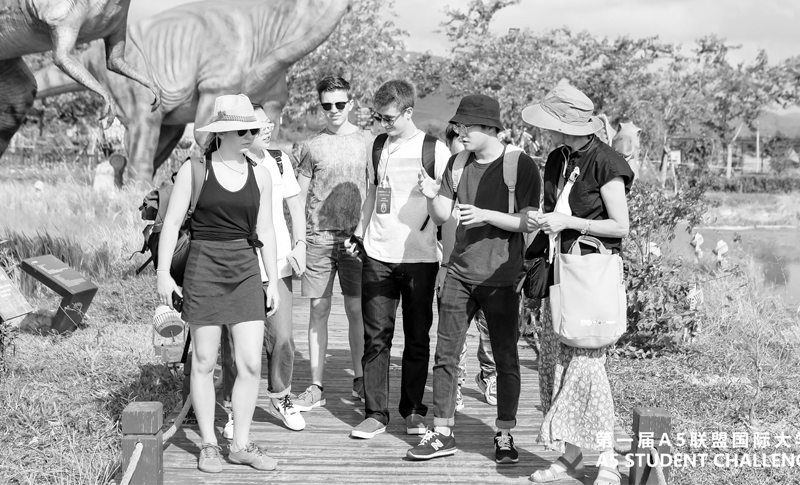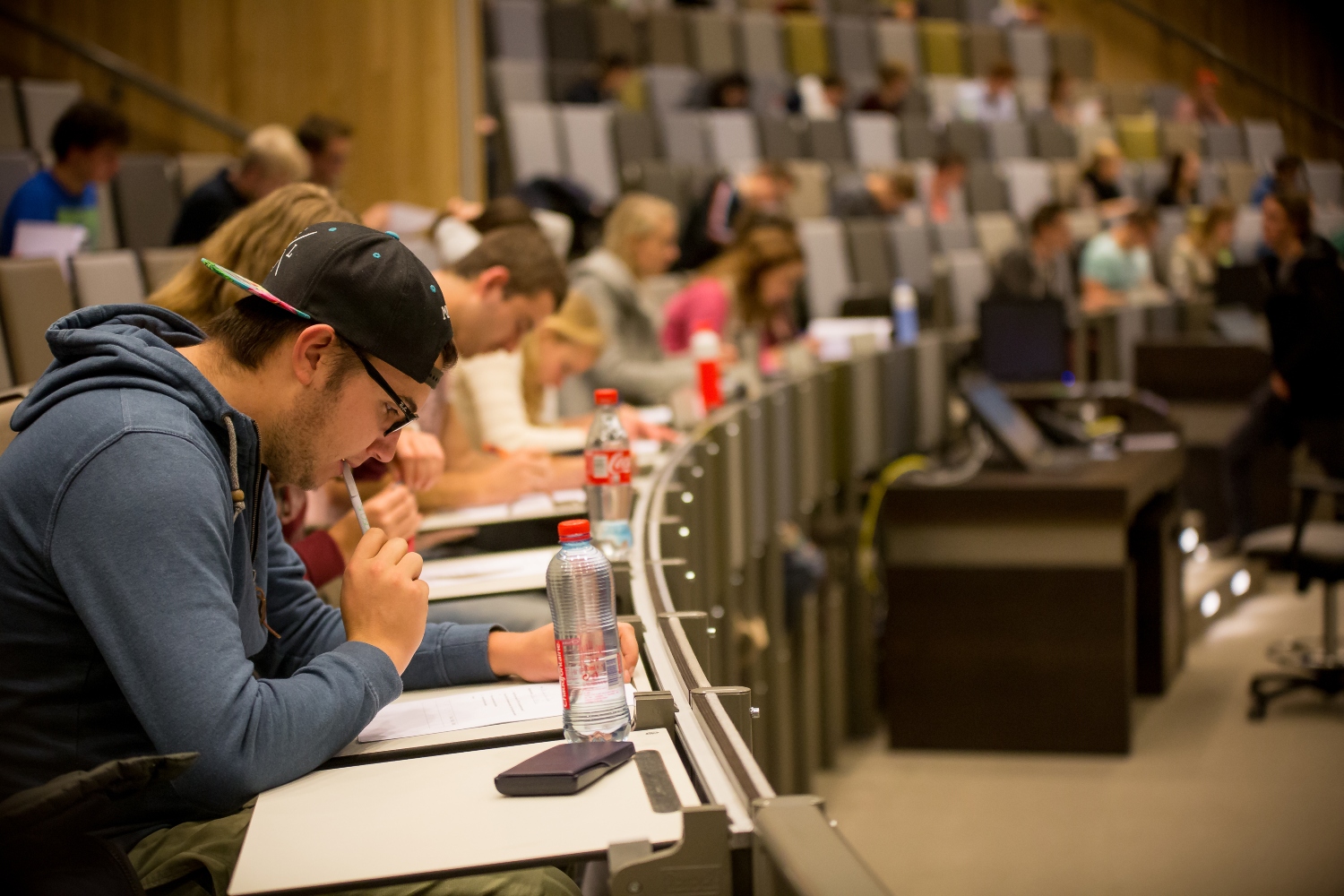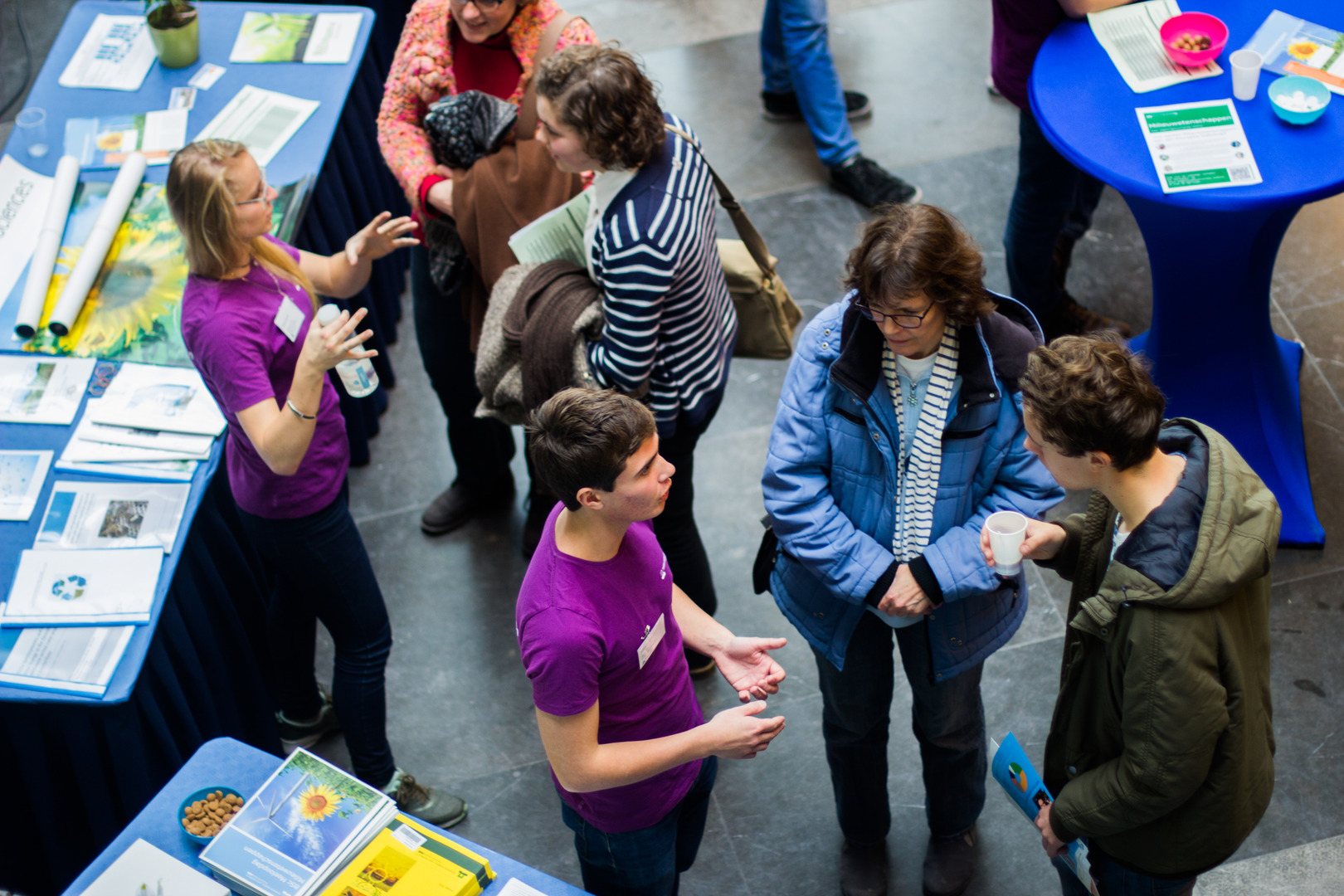Students love student challenges. Some of them are so keen that they get involved in more than one, undaunted by the amount of time and effort they require.
‘Student challenges are addictive,’ says Tijmen Visser (27), a Master’s student of Biosystems Engineering. He is currently tackling the ReThink Waste Challenge organized by WUR, in which participants are tasked with transforming a waste stream into something of value. ‘It could be a waste stream from the construction industry, the textile industry, the food industry, you name it. Each team has to come up with a business plan for an economically viable product. Then a jury of people from the business world studies our plans, looking at things like the social and ecological impact of the idea and what problem it solves. Each team gets 500 euros to work on their project, and the winner gets 6000 euros to actually implement the winning idea as a start-up.’ Together with his team, Visser is looking at ways to make micro-proteins using waste streams from the agricultural sector. ‘You can convert them into protein extracts for things like protein shakes.’ A total of more than 190 students from 72 universities in 33 countries are taking up the challenge.
If you ask me, that’s a brilliant learning environment
This is not Visser’s first challenge, though. In the 2021-2022 academic year, he joined in the third edition of WUR’s Greenhouse Challenge, in which participants made plans for a sustainable urban agriculture project in Washington to contribute to a healthy residential environment. ‘I was in a Wageningen team. You could see that we had given careful thought to the green aspects of the project: from the selection of suitable plants to ensuring soil diversity and designing the right kinds of greenhouses. On the other hand, other teams from universities with schools of architecture had much sleeker designs. There are also differences between teams who put their studies on hold for months to participate in a challenge and teams like us who just carry on studying fulltime and work on the challenge in free hours.’
Pizza
Visser’s team meets every Tuesday, Thursday and Friday for the ReThink Waste Challenge. ‘And sometimes we meet in the evening over a pizza.’ It’s a substantial time commitment, Visser says. ‘You have to set clear boundaries, otherwise you can get completely swallowed up by it. But if you are really excited about a subject and you’re working on it with a team in a positive spirit, it energizes you rather than sapping your energy.’
Master’s student of International Land and Water Management David Mornout (24) has taken part in two challenges too. And he didn’t leave it at that: he then became a student assistant at WUR Student Challenges. ‘When you take part in a student challenge, you work in a team on a project that you really like and that’s on a topic you might want to work on later in your career. You are guided by a mentor or coach who knows their stuff. You get to know people and you might even win a prize. If you ask me, that’s a brilliant learning environment.’
Designing campus
The first challenge Mornout took part in kicked off with a trip to Hainan in southern China for him and nine other WUR students. ‘That was the A5 Student Challenge of the Agrifood 5 Alliance, a partnership between WUR and universities from America, China and Brazil. All the universities took a group of students to Hainan, where five Chinese universities wanted to develop a joint sustainable campus, says Mornout. The students were divided into small teams with one person from each university. Mornout: ‘All the team members were doing different degree courses and had their own areas of expertise. My main focus was on how best to fit the campus into the landscape.’
After the kick-off, Mornout spent six months working online with teammates from China, America and Brazil, to figure out a plan. ‘The idea was that we would all fly back to Hainan for the finals. But because of the Covid pandemic, we had to do that online. It was a great experience, to help design a campus as a rookie in an international, interdisciplinary team. And to see China – that was really special.’
If it doesn’t work, it’s not a disaster and if it does work, it’s great
Experimenting
As a student assistant for the Nature Based Solutions Challenge, Mornout saw a student challenge from a new angle. ‘I helped search for sponsors and partners and plan what the challenge should look like. You learn a lot from that too. The beauty of this educational approach: if it doesn’t work, it’s not a disaster and if it does work, it’s terrific. Some participants start a business after the challenge.’
Professor of Education and Learning Sciences Perry den Brok sees student challenges as a positive development. ‘As a university, we want our graduates to be well equipped for a future with big, complex, international challenges. This approach is a good way to start working on that. Students work on real problems, make substantive connections between different disciplines, learn to cooperate and be entrepreneurial. These are all competences they can put to good use later on.’
Five years of Wageningen student challenges
- WUR Student Challenges was established in 2017 and has since organized 16 challenges;
- To date, 2,276 students have participated in the challenges in 370 teams;
- 614 of the participants were WUR students; the others came from 249 other universities in 67 countries;
- 8.3 per cent of WUR respondents to the National Alumni Survey of 2021 had participated in a student challenge; 97 per cent of these students found it (very) rewarding;
- Seven student challenge teams went on to start a company, and one a foundation.

 Inspiration visit to a theme park in Hainan (China) to think of the design of the ideal campus. Danielle Street (CORNELL), Cui Yongqin (HNU), David Mornout (WUR), Joao Camargo (USP), Feng Yuan (UCD) and the teams mentor Professor Rebecca Nelson. Own picture
Inspiration visit to a theme park in Hainan (China) to think of the design of the ideal campus. Danielle Street (CORNELL), Cui Yongqin (HNU), David Mornout (WUR), Joao Camargo (USP), Feng Yuan (UCD) and the teams mentor Professor Rebecca Nelson. Own picture 

